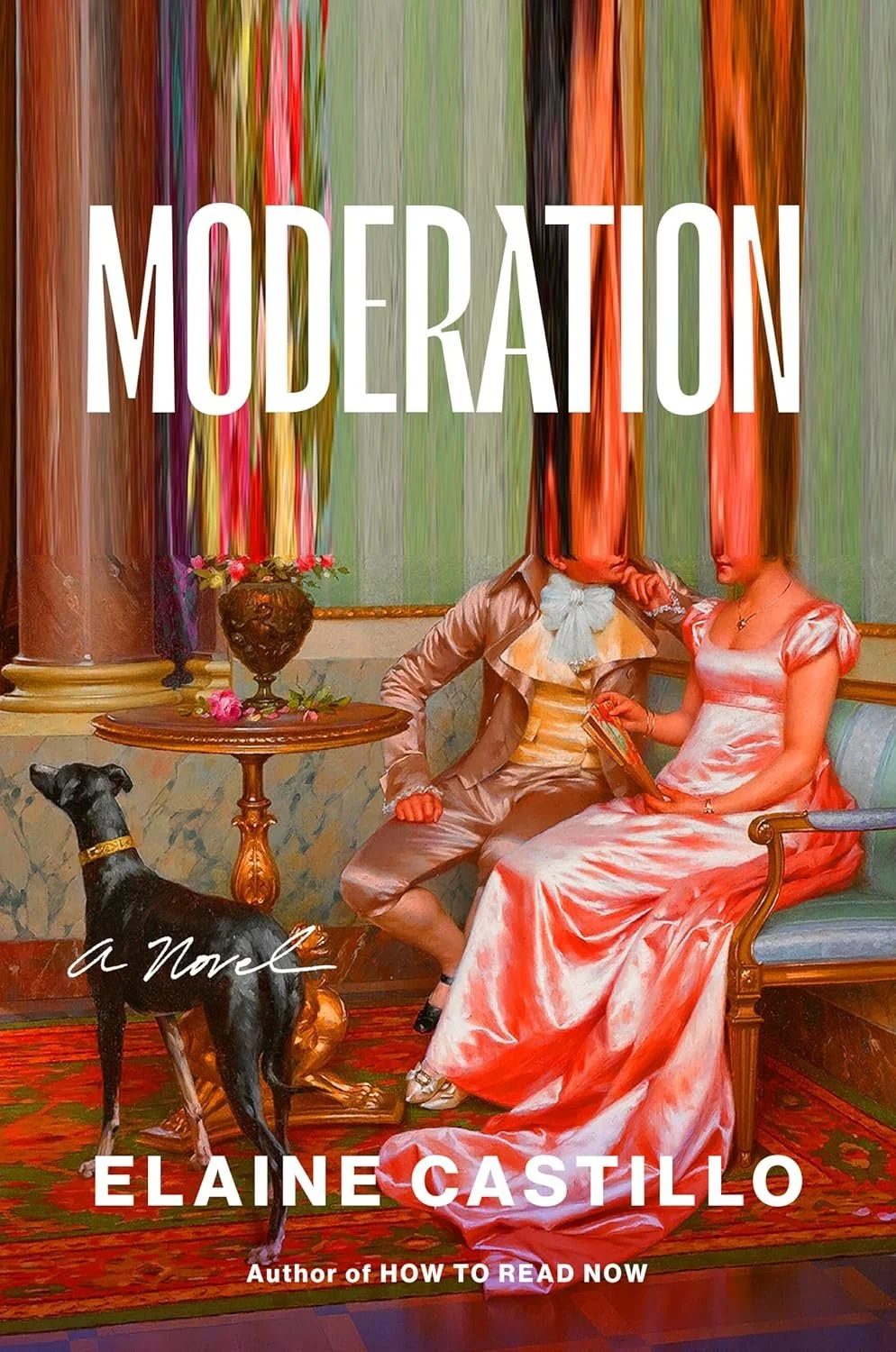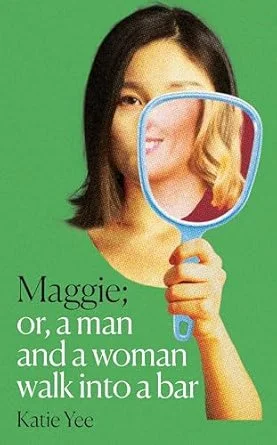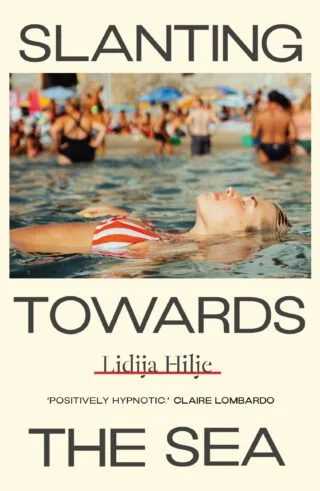A Conversation with Saba Sams
I wanted to start with a question about process because Gunk is your first novel and your last book, Send Nudes, was a short story collection, so I’d love to know whether your writing process changed at all? And were there any challenges when moving from short story to novel?
I think I approached Gunk like I would have approached a short story, and I wonder now if that was a maybe just naive of me. I started writing and I just kept going and, even with a short story, I would do the same thing. I would get these characters in my head, have a setting and then I would just go for it; it works with a short story because you have time on your side to really work out what’s going to happen. With the novel, it just took me a really, really, really long time to even get to what I wanted, you know?
But then, equally, I had small children then. With Send Nudes, I wrote the first half before my first son was born and then I wrote the second half of the stories with one small baby, which felt possible. But with Gunk, I started writing when my first was probably around two years old and then I had another baby when he was three, and I remember thinking I would finish the first draft before the second baby was born and I didn’t – I didn’t even come close. So, when my second baby was one, I put him in nursery and that’s when I wrote the book. Because of that, I had two or three years of writing in circles; I would write when I could, but by the time I got back around to writing again, I would just re-read my work and spend the whole time reminding myself what I was doing and never writing another word or just spurting out something that didn’t make any sense. The whole process was really messy, and I’ve learned now, so my hope is to plan for my next book and then only start writing when I have the time.
When I was writing, I still approached it like I would a short story, which meant that I just sat down to write, and I just kept going until I understood my characters. That completely changed the direction of the book because suddenly you think, she would never do that or he would never say that, so then you write the next draft, but you know your characters this time. And then the plot happens. I had this big messy book with lots of words scenes, and I did exactly what I do with a short story, which is to go back and find the structure. At the very last point, I went back again, and I added in those present tense scenes that I think made it work as a book. I think, if I had written a novel before, I would have known to do that first.
Did you know the bare bones of the plot from the beginning?
I actually wrote the birth scene first and I knew I wanted to end on the birth scene. I had this idea of like a book that ended with a beginning, so I wrote this birth scene from the perspective of the character giving birth because I hadn’t considered otherwise, and it just didn’t work. You know, there was no narrative, no character development, and I couldn’t make it make sense from that perspective. So, I introduced Jules because I needed a witness to the birth scene; I needed someone who was in the room but not giving birth. And it all came from this, you know, desire to write this big birth scene that took up multiple chapters because I wanted to force my reader to witness a birth. And what’s when I thought, I’m going to put the witness in the book as well, which brought about the alternative family dynamic. So, I very much wrote the end first and worked it out from there.
When I was reading reviews and blurbs about Gunk, I realised it’s a very difficult book to describe succinctly and accurately. So, I was wondering how would you describe it yourself to our readers?
I feel like it’s a dreaded question. You know, when I’m in the park with my kids and someone asks what I do and I say I’m a writer and I’ve just written a novel, they’re like, “Oh, what’s it about?” And I just think, oh god, I can’t say what happens because that would ruin it. Actually, I remember the first time I read the blurb, my first thought was that nobody would read the book because it basically is the book, you know? But equally, it’s a book that ruins itself anyway because it starts at the end — you know within the first chapter what’s happened.
I guess I’d describe it as a book about an alternative family set-up. I feel like the label “motherhood” feels misleading, you know, because I wouldn’t want someone to pick it up looking for something about motherhood, because it’s so not about motherhood — not about the day-to-day experience at all. In fact, it ends as soon as the baby is born.
I guess it’s more about redefining motherhood. I want it to be so much bigger than that — I’m interested in this idea that anyone can be a mother and everyone should be mothered. You know, mothers need mothering, grown-up children need mothering, and you can mother outside of your gender or biology. It’s kind of a motherhood book that’s not a motherhood book. I guess the slipperiness is the point really — like it’s the same with Jules and Nim’s relationship: it’s supposed to be undefinable. That’s what I wrote them to do, so it feels right that the book is hard to put in a box.
There’s a sense that this book sits in the realm of contemporary modern literature written by young debut women — books where the protagonist is a bit of a “hot mess,” confused and trying to find their place in the world, and those books can often be quite bleak. I feel like Gunk isn’t that at all; it has a real warmth and heart to it, and even though it could be misconstrued as fitting that genre, it doesn’t really. Was that something you thought about consciously when writing — writing against that genre — or were you not even thinking about it?
I don’t know, I have a funny relationship with that stuff. Like, in my Guardian interview I was asked about “sad girl lit”. I feel like these labels are slightly misogynistic, right? You’re taking a bunch of writers who are linked really only by age and gender, and then you put them in a box like, “Oh, they’re all doing this thing.” It feels impossible to work with or talk about, you know? I wasn’t actively trying to do anything different – all of those writers inspire me. I love Sally Rooney, for example, but equally, the ways that our books are the same are probably because we’re young women growing up at the same time. And the ways they’re different are because we’re all individual people and can only write the books we can write.
I think for me, I write for fun a lot of the time, so there’s a lot of energy and empathy there. That’s where I find my energy and empathy, trying to surprise myself and have fun. Writing about a nightclub was really fun for me because in real life I’m a mother of three now, so that’s where I’m at.
And also, I guess you don’t really see this happen with male writers – you wouldn’t just group together “young debut male novelists” and decide they’re all doing something similar. That would be quite strange.
Yeah, exactly. It’s a strange thing. And everyone expects me to have some hot take on it, but I don’t really, because I don’t find those writers groupable. I really don’t.
It’s almost like, if we try to group them together, you end up talking about them together, which is a bit of a disservice to each author?
I think so.
You mentioned the nightclub, Gunk, and I really wanted to talk about the setting you chose – why did you choose a grotty nightclub as one of your main settings? Also, it’s where all the characters meet and interact, so I’d also love to hear about how you use the club to build the characters; they each exist in that space so differently, and it really brings each character to life.
Yeah, exactly. I think there’s something exposing, or condensing, about a nightclub, in terms of putting your characters there. It’s always going to be a space that shows a little more of who that person really is. Really, I wrote it because I was just trying to entertain myself, like I said. I’ve been to a lot of clubs, and I know those places well. They’re so sensory-rich, and it’s fun to remember and imagine, even though it’s also horrible and gross.
I needed these dynamics to work a certain way. I knew I wanted Leon, who’s the boss but has no real deserving of it – his mum financed the club and his ex-wife runs it – and he’s just there causing trouble. That felt right for his character. And then I needed Jules, whose whole sense of self is attached to her usefulness. I was thinking about what it would feel like to raise a baby someone else has birthed, and how that might make you feel in terms of what your body can do or not do. And then I was thinking about capitalism too — how tied we are to our work and what we can do, or how we feel when we don’t have that work.
And then Nim is this amazing shapeshifter who can work behind the bar and make it look fun and skilful, but there’s also that scene when she goes onto the dance floor heavily pregnant and is completely at home there, in a way Jules could never be. Jules would never dance there, but Nim can. I was thinking about youth and class and a certain kind of maturity and confidence, despite being so young.
The club felt like the place where all of these things could happen. I also loved calling it Gunk – I called it that before there was any other gunk in the book. It was visceral and bodily, which worked for me. It was pretty late in the process when a friend of mine said, “Oh, like the gunk that a baby comes out covered in?” We were sitting in my garden, and I was like, “Oh yeah!” I hadn’t even made the connection, that babies are born covered in this white waxy stuff called vernix. That was a magical moment, when you feel like you’re writing the book you’re supposed to be writing, even if you didn’t realise it at first.
Read the rest of the interview in the Summer edition of nb notes. Sign up here by 30th June to get a copy.
Editorial Picks





